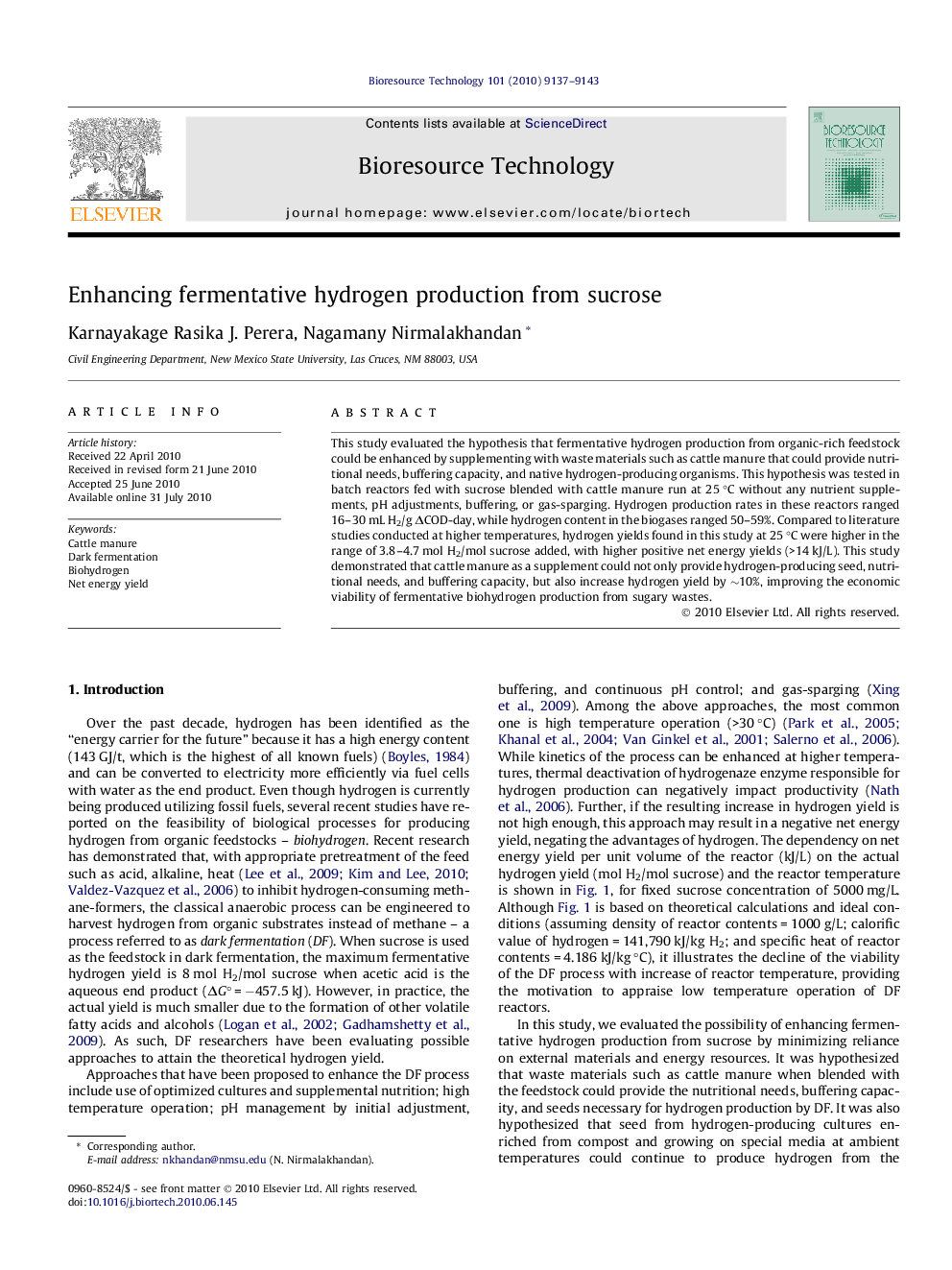| Article ID | Journal | Published Year | Pages | File Type |
|---|---|---|---|---|
| 681893 | Bioresource Technology | 2010 | 7 Pages |
This study evaluated the hypothesis that fermentative hydrogen production from organic-rich feedstock could be enhanced by supplementing with waste materials such as cattle manure that could provide nutritional needs, buffering capacity, and native hydrogen-producing organisms. This hypothesis was tested in batch reactors fed with sucrose blended with cattle manure run at 25 °C without any nutrient supplements, pH adjustments, buffering, or gas-sparging. Hydrogen production rates in these reactors ranged 16–30 mL H2/g ΔCOD-day, while hydrogen content in the biogases ranged 50–59%. Compared to literature studies conducted at higher temperatures, hydrogen yields found in this study at 25 °C were higher in the range of 3.8–4.7 mol H2/mol sucrose added, with higher positive net energy yields (>14 kJ/L). This study demonstrated that cattle manure as a supplement could not only provide hydrogen-producing seed, nutritional needs, and buffering capacity, but also increase hydrogen yield by ∼10%, improving the economic viability of fermentative biohydrogen production from sugary wastes.
